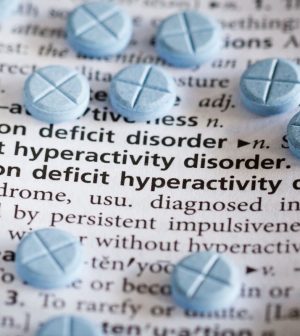- Could Your Grocery Store Meat Be Causing Recurring UTIs?
- Are You Making This Expensive Thermostat Error This Winter?
- Recognizing the Signs of Hypothyroidism
- 10 Strategies to Overcome Insomnia
- Could Artificial Sweeteners Be Aging the Brain Faster?
- Techniques for Soothing Your Nervous System
- Does the Water in Your House Smell Funny? Here’s Why
- Can a Daily Dose of Apple Cider Vinegar Actually Aid Weight Loss?
- 6 Health Beverages That Can Actually Spike Your Blood Sugar
- Treatment Options for Social Anxiety Disorder
About 6% of U.S. Adults Have ADHD, Drug Shortages Are Affecting Treatment

More than 15.5 million U.S. adults have been diagnosed with ADHD, and nearly three-quarters of those taking medication to treat it say drug shortages are hampering their ability to get help, a new report finds.
According to the U.S. Centers for Disease Control and Prevention (CDC), a national survey conducted last fall found that 6% of adults have a current diagnosis of attention deficit hyperactivity disorder (ADHD), and just over half (about 56%) received that diagnosis in adulthood.
Many aren’t receiving treatment to control the inattention, impulsivity and hyperactivity that characterize the condition.
“Approximately one half of adults (50.4%) with ADHD were prescribed medications to treat their ADHD during the previous 12 months,” noted a team led by Brooke Staley of the CDC’s National Center on Birth Defects and Developmental Disabilities.
The vast majority of drug treatments involved stimulant medications such as Ritalin, Vyvanse, Concerta or Adderall. However, recent shortages of these meds are affecting most adult ADHD patients, the study also found.
“Among adults who reported taking a stimulant medication, 71.5% reported difficulty getting their ADHD prescription filled during the previous 12 months because their medication was not available,” the CDC team said.
That can lead to real problems for patients, because proper medication is tied to “reduced social and emotional impairment, unintentional injuries, substance use disorders, and the risk of death to unnatural causes,” the report’s authors said.
Folks who can’t get their ADHD medications through usual means might also try to buy them off the Internet or elsewhere, “increasing their risk for overdose because of the prevalence of counterfeit pills in the illegal drug market, which might contain unexpected substances such as fentanyl,” Staley’s team added.
ADHD drug shortages have plagued U.S. patients for years. The FDA first warned of a shortage of Teva Pharmaceutical Industries’ Adderall medication in October 2022, as the company grappled with manufacturing delays.
In September, the U.S. Drug Enforcement Administration gave drugmaker Takeda, the maker of Vyvanse, the green light to make more of the medication as a shortage of ADHD drugs continues.
Telehealth is a relatively new avenue some adults with ADHD might turn to as they seek out needed care.
The new report noted that close to half (46%) of adults with ADHD said they had used such services, including nearly 1 in 10 patients who said they received their ADHD diagnosis via telehealth services.
About 30% said they had gotten help accessing ADHD meds and/or counseling in this way, as well.
The new findings were published Oct. 10 in the CDC journal Morbidity and Mortality Weekly Report.
More information
Find out more about ADHD and its treatment at the National Institute of Mental Health.
SOURCE: Morbidity and Mortality Weekly Report, Oct. 10, 2024
Source: HealthDay
Copyright © 2026 HealthDay. All rights reserved.










